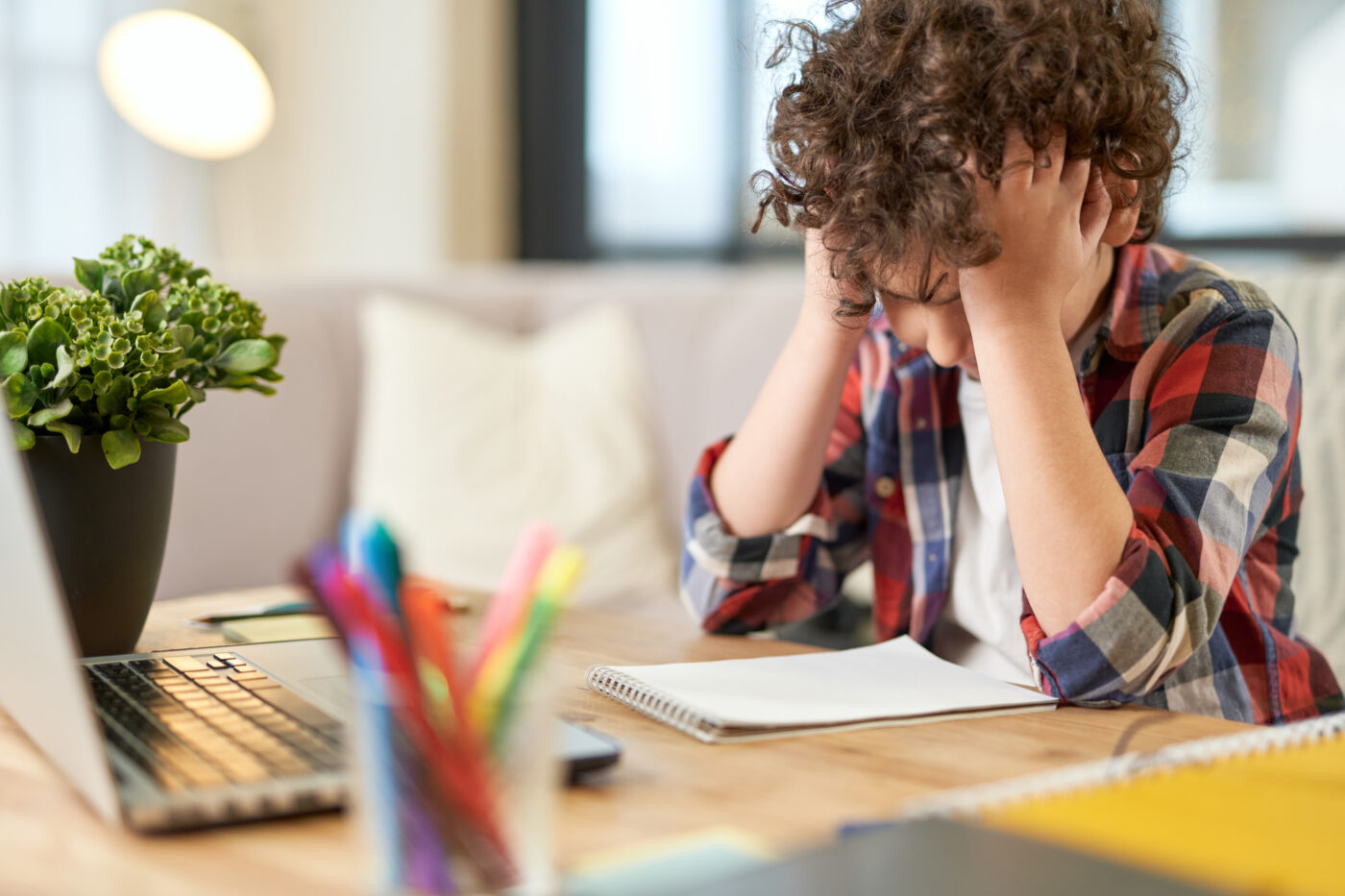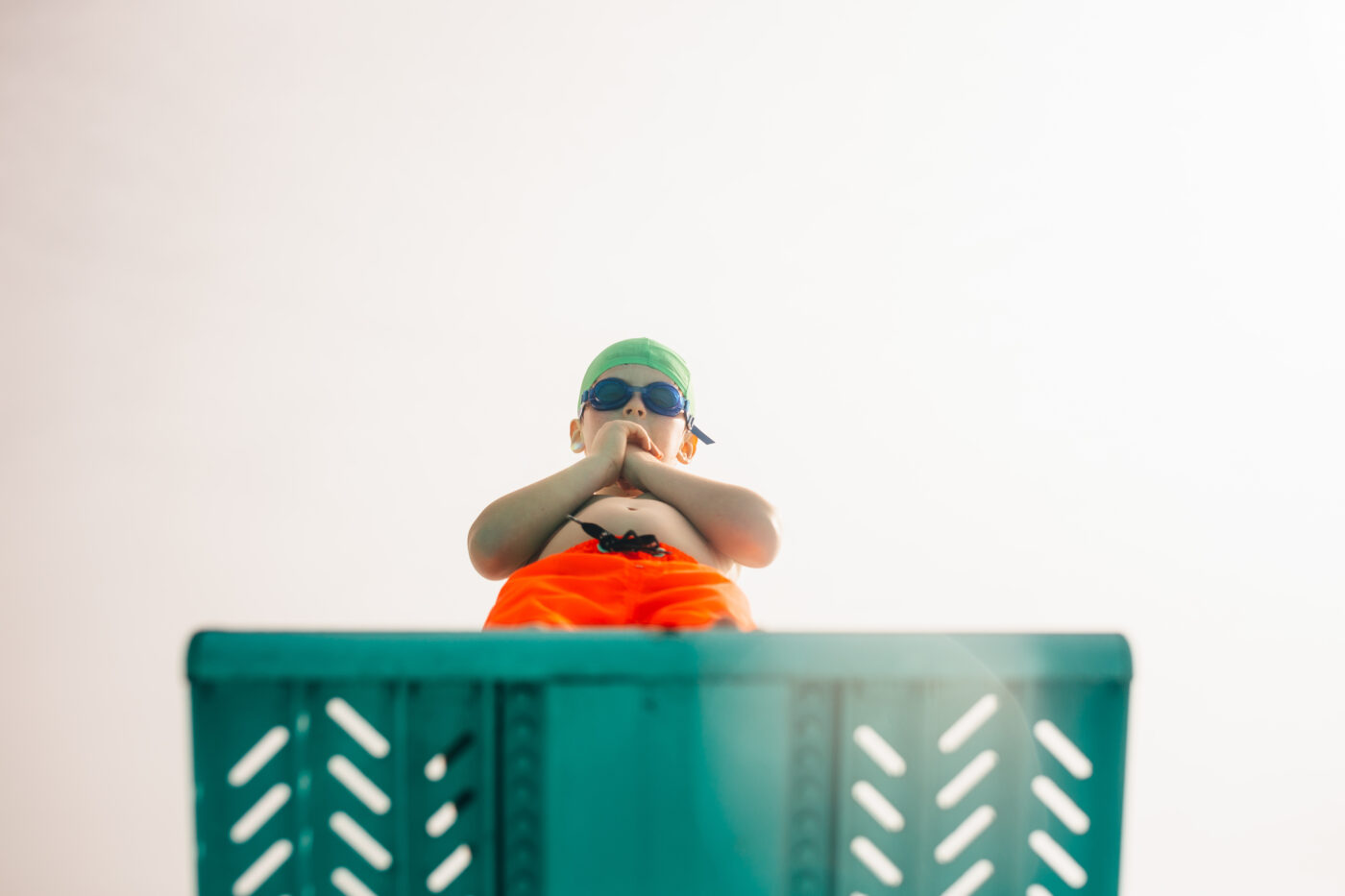There are few things as ubiquitous in our society as anxiety. Adults have it. Kids have it. Even my buddy’s dog is on anxiety medication. On the one hand, it’s tempting to think we’re over-diagnosing ourselves and others. And this is likely the case. At the same time, I also think that much of what we see as “normal” in American culture runs counter to what’s actually healthy for us and our kids.
Therefore, if we want to know how to help a child with anxiety, the hard truth is we’re going to have to make some choices that feel a little countercultural. It’s certainly not a guarantee, but there are some clear ways we can create environments that are conducive to our kids flourishing. Here are 5 ways to help a child with anxiety.
1. Be consistent.
Did you know your brain actually perceives uncertainty as a threat? We were wired for consistency, so when we don’t know what’s coming, it triggers a fight or flight response in our brain. This is especially true for our children, whose brains are in the process of being formed (literally). So the more we can create consistency and structure for their lives, the more they can relax. With our crammed schedules, this can be challenging, but if you want to know how to help a child with anxiety, work to create a rhythm of life in which your child has consistency in key areas such as meals, bedtime, and connection with you.
2. Be present.
Speaking of connection with you: Your presence brings peace and stability to your child. A recent study suggests what any parent knows—that a parent’s presence affects how a child’s brain responds to fear. When your kids are scared, what do they do? They come into your room or run to you to be held. But this is true even as your kids age. The older they get, the less obvious it is (your teen doesn’t ask you to hold her), but your presence is still necessary. Not only do our busy schedules push against this, but so does our tech-addiction. Physical presence but mental absence (i.e., when you’re in the room but glued to your phone) isn’t being present. If you want to know how to help a child with anxiety, be present—physically and mentally.
3. Reduce media.
And while we’re at it with technology, it’s also commonly understood now that technology in the hands of our kids increases anxiety, according to the American Academy of Pediatrics. Certainly we can’t remove every aspect of technology from our children’s lives, but we can work to reduce their media consumption wherever possible. At a minimum children should be restricted from social media usage as long as possible. The American Academy of Pediatrics also says most experts recommend no social media until at least 13. But in my opinion, the older the better. It’s hard to overstate the way social media consumption by teens exacerbates anxiety. You’ll have to fight against pleas of “But everyone else has it!” and “I’m the only one!” But if you want to know how to help a child with anxiety, work to reduce social media usage.
4. Lighten your schedule.
What’s the most common way someone responds to “How are you doing?” In my experience, almost everyone says “busy,” or some variation of that theme. Why? Well, busy means productive. It means I matter. It also represents the reality that our lives are often overflowing with activity, and we feel overwhelmed by it. Guess what—your kids feel that too. More so than you. Children need unstructured downtime. They need time to be creative and solve problems. This creates resilience and a sense of stability. If you want to know how to help a child with anxiety, work to reduce the busyness in your life.
5. Encourage sleep.
Along with consistency in bedtime, children simply need sleep, and lots of it. Sometimes it’s easier for us to keep them up late so they are exhausted. Or frankly, we have no choice because we have so many activities that it’s impossible for them to get to bed before 9:30 or 10 p.m. However, we know that lack of sleep feeds anxiety. It’s true in us, and it’s especially true in our kids. If you want to know how to help a child with anxiety, start with making sure he gets the sleep he needs. You’ll both feel better because of it.
Sound off: What advice would you give to a dad who needs to know how to help a child with anxiety?
Check out the All Pro Dad team discuss the best ways to help our kids with anxiety in this podcast:









Huddle up with your kids and ask, “What do you think the trick is to falling asleep fast and staying asleep until your alarm rings?”